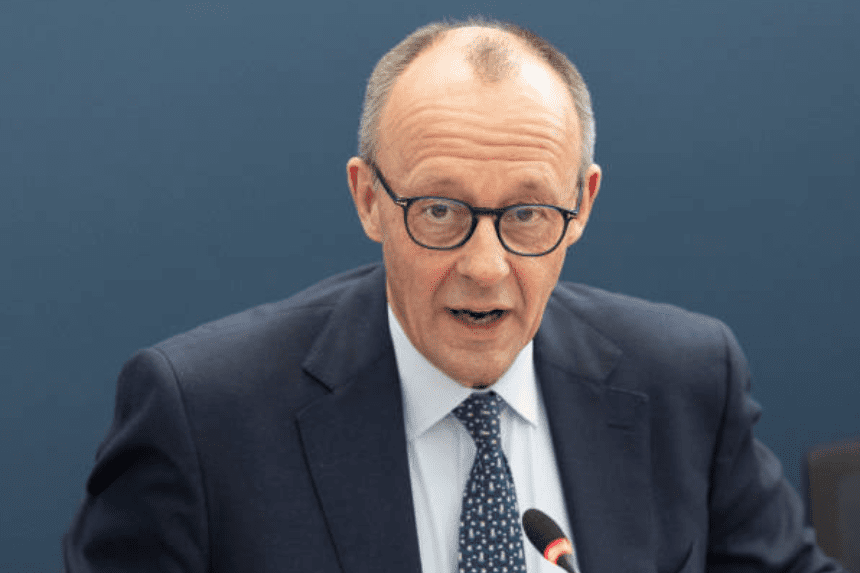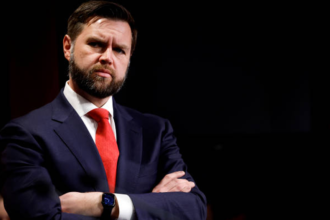With Friedrich Merz becoming chancellor after a dramatic and widely watched two-round Bundestag vote, Germany has formally entered a new era. This result not only marks the end of months of political uncertainty but also refines the emphasis on the orientation of Germany’s next government.
The first vote stunned a lot of people. Merz missed the absolute majority required by six votes. In Germany’s post-war record, no chancellor contender had lost such a referendum. The voting was conducted under a secret ballot, so casting doubt on the source of opposition. Viewers wondered over whether the Social Democrats (SPD) MPs from Merz’s coalition partner or members of his conservative alliance were behind the setback.
This outcome generated instant doubt. The stakes were great since Germany lacked a working government since the last coalition fell apart. Some worried about an extended deadlock influencing Germany’s position on the world scene as well as home policy.
Party officials moved quickly despite the upheaval. Agreed to do a second vote the same day were Bundestag President Julia Klöckner and parliamentary leaders. Their goal was to bring political peace back right away.
Friedrich Merz Safe Victory in the Second Vot
The second vote clarified things. Friedrich Merz chose Chancellor with 325 votes—just nine more than required minimum. Comprising the SPD and conservative Christian Democrats (CDU/CSU), his alliance held 328 seats overall. While that should have been sufficient, the first vote revealed underlying conflicts.
Emphasizing urgency, CDU General Secretary Carsten Linnemann said, “Europe needs a strong Germany. We cannot wait for several days. He underlined that, given the world Germany faces, Germany owed it to show unity and direction.
President Frank-Walter Steinmeier formally swore Merz in following the successful second vote. Comprising seventeen ministers, his new cabinet also set office. Combining seasoned lawmakers with fresh ideas, the cabinet emphasizes the administration’s aim of fusing stability with innovation.
Jens Spahn, the parliamentary leader, hailed the result and pointed out that others were observing. Underlining the need of consistent leadership, he stated, “all of Europe, perhaps the whole world is watching this ballot.”
What Trials Ahead for the New Chancellor and His Cabinet?
Friedrich Merz’s election of chancellor marks a challenging agenda for the new government. Economically Germany is coming out of two years of recession. Consumer expenditure is still sluggish even if the first quarter of 2025’s economy showed slight increase. Furthermore, recently imposed U.S. tariffs impair German exports, therefore stressing manufacturing and trade.
Merz will also have to cover public sector reforms, energy transition, and migration policies. These are politically delicate topics, hence, success will depend on wide Bundestag support. Some young SPD members have already voiced reservations about Merz’s plans, implying that internal coalition dynamics would provide ongoing difficulties.
Still, Merz seems set on something. “It’s our historical duty to make this government a success,” he said during the coalition agreement signing. His comment captures his awareness of the potential and responsibility now before him. Read another article on Russian Influence in Germany.
Why did the first vote set off such strong reactions in Germany?
The first unsuccessful vote set off strong responses from all political backgrounds. Securing 20.8% in the February election, the far-right Alternative für Germany (AfD) grabbed hold of Merz’s initial setback. The rejected vote underlined the fragile basis of the CDU-SPD cooperation, according to joint leader Alice Weidel.
Another AfD member, Bernd Baumann, attacked Merz for supporting the SPD in line with conservative ideas even whilst campaigning on alternative policies. “That does not work.” That’s not how democracy operates,” he said, gesturing at what he considered to be a vote expectation betrayal.
Even individuals with different political views advised moderation. ” Even though I don’t want this chancellor or support him, I can only warn everyone not to rejoice in chaos,” said Green lawmaker Katrin Göring-Eckardt.
Meanwhile, SPD leadership stood up for their allegiance to the coalition. “It was a secret vote so none knows, but I can tell you I don’t have the slightest impression that our parliamentary group wouldn’t have known our responsibility,” Senior MP Ralf Stegner said.
These remarks draw attention to the political sensitivity behind Merz’s appointment. The strain to keep the alliance united will be constant.
How is the world reacting to Merz's appointment?
Merz’s election is under great observation internationally. One among the first to extend congrats, Ukrainian President Volodymyr Zelensky expressed optimism that Germany would assume more leadership responsibility both inside and outside of Europe.
Other European politicians and outside watchers are watching to see how Merz will manage home concerns with worldwide obligations. Olaf Scholz, Germany’s former chancellor, had concentrated especially on transatlantic ties and EU integration. In the next weeks, it will become evident whether Merz keeps in the same lines or veers off course.
How might Friedrich Merz shape Germany's future?
Though its majority is small, the coalition is thought to be steadier than past traffic-light alliances. Long histories of governance surround the CDU and SPD, and their new accord shows a common wish for pragmatic leadership.
Early actions by the government will probably center on rebuilding public confidence, controlling immigration, and revitalizing the economy. The services sector of Germany has displayed indications of shrinkage, which emphasizes the economic agenda of the government.
Friedrich Merz, chosen chancellor, presents an opportunity for new leadership and a stronger Germany. Still, the margin of error is really small. Clear communication, policy discipline, and the capacity to negotiate internal opposition will define success.
Should Merz fulfill his promises, his leadership might provide German politics much-needed impetus. It should not be the case; another collapse is looming. In either case, Germany is in a turning point and everyone is focused on its new chancellor.
All things considered, Friedrich Merz chosen chancellor not only cleared a political deadlock but also prepared the ground for a possibly revolutionary era in German affairs. Right now, promises are not enough; action is needed.








